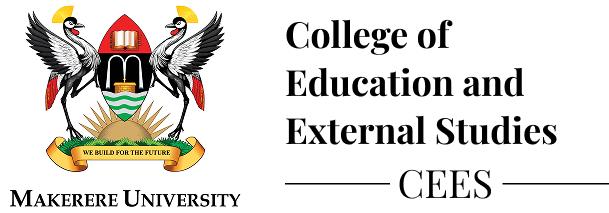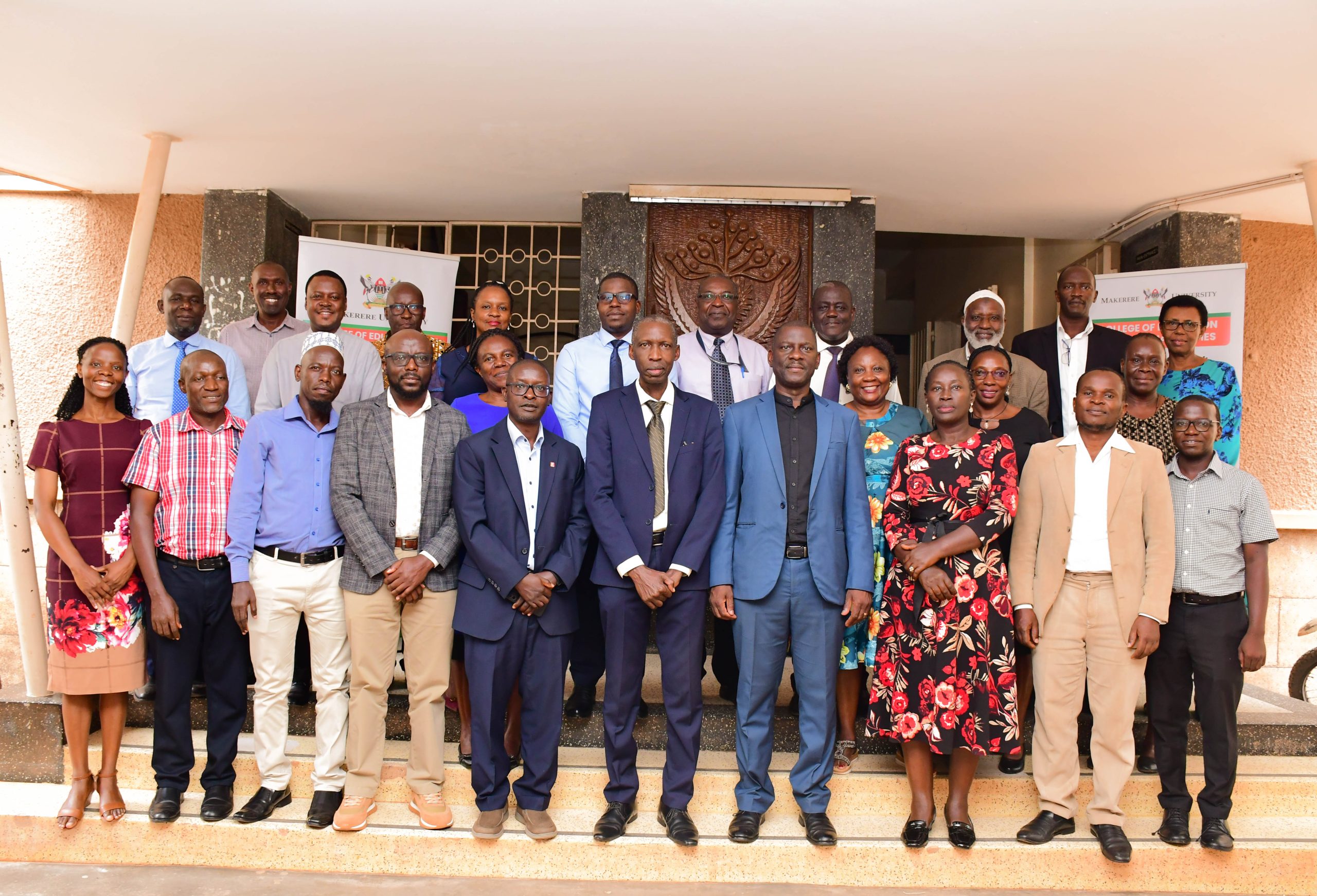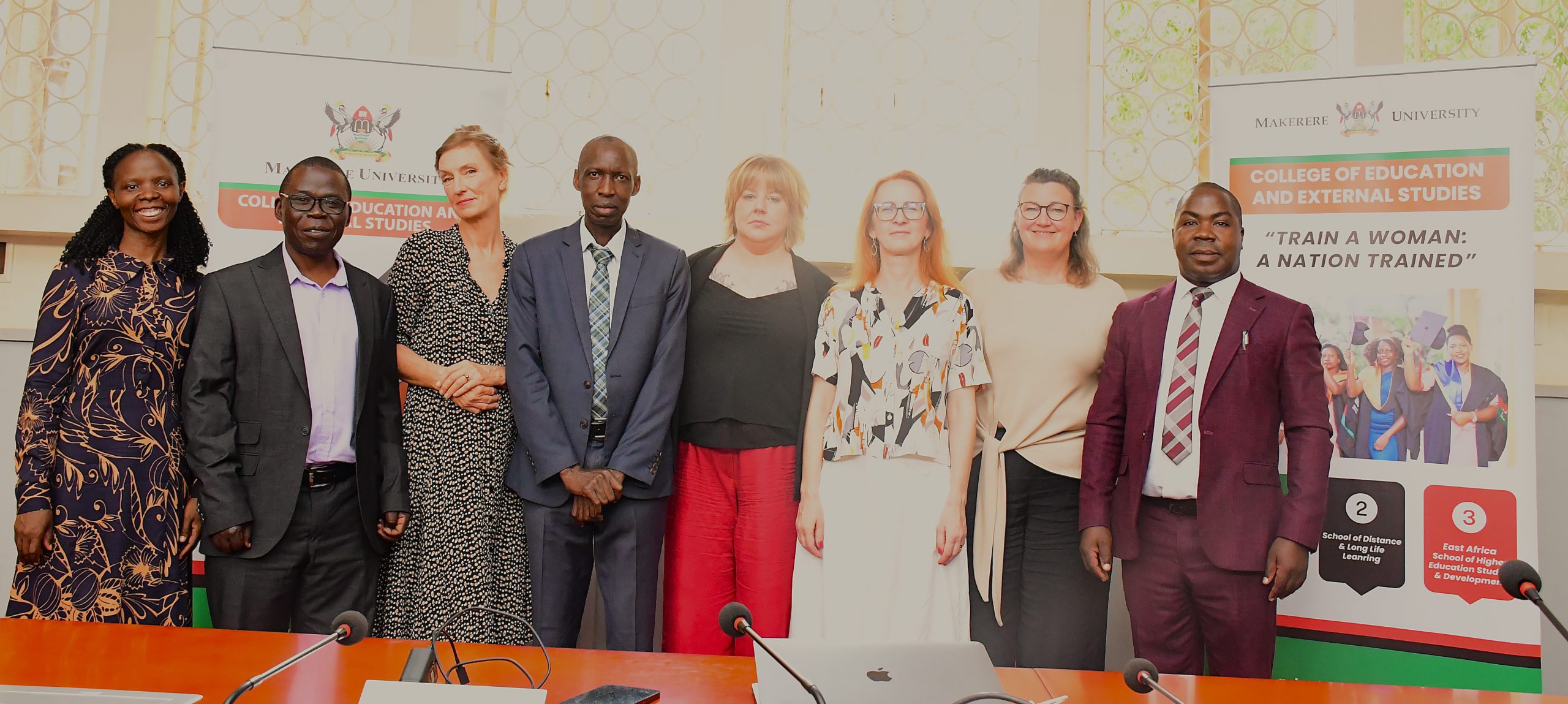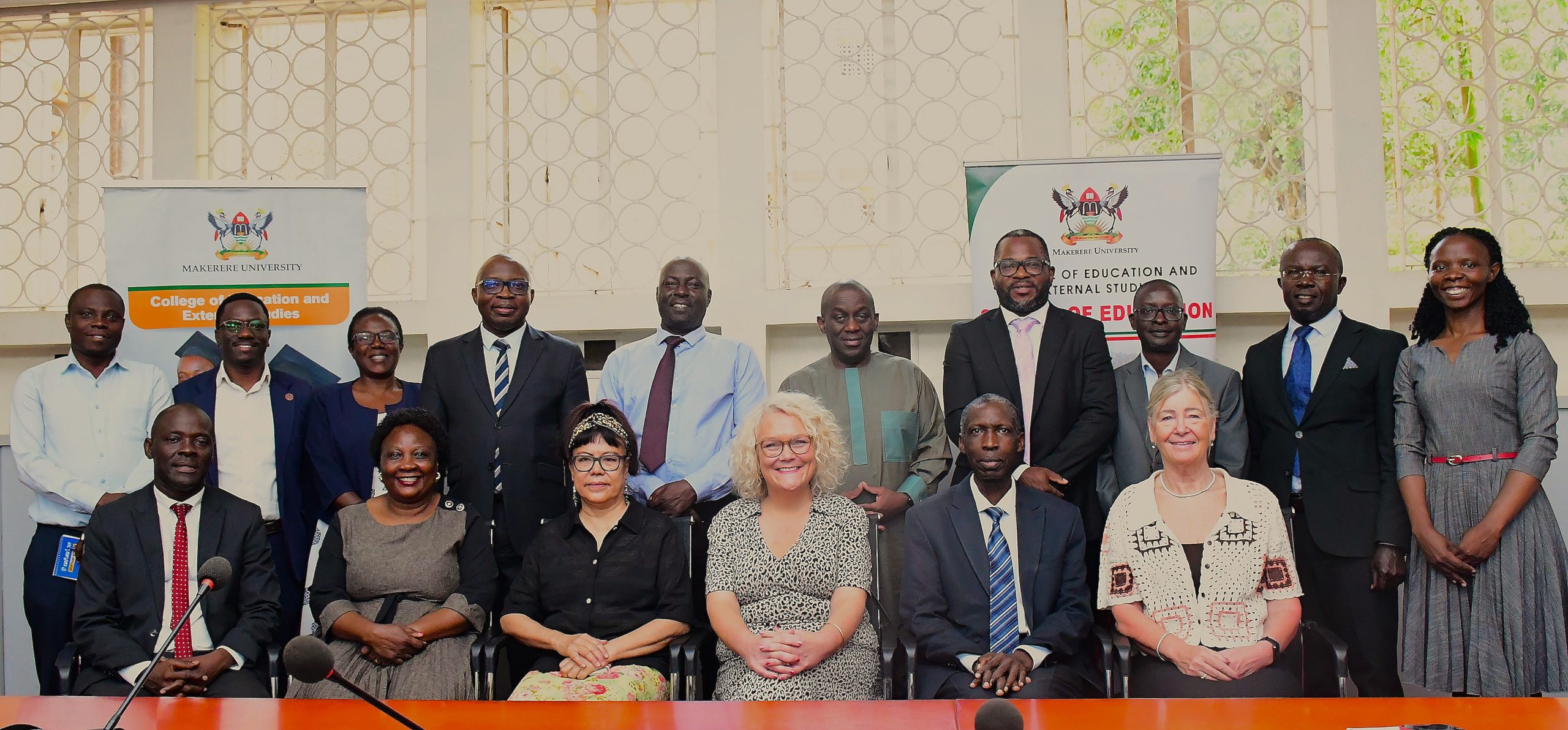November, 4th 2025: Makerere University through the College of Education and External Studies, has been offering the Postgraduate Diploma in Education (PGDE) following the face-to-face delivery model.
In addition, to the physically taught Postgraduate Diploma in Education, the College of Education and External Studies, embarked on a process of curriculum development, for the online delivery model (PGDE-online).
This strategic option presents learners with a choice to either enroll for the physically taught (face to face) or the online Postgraduate Diploma in Education.
The introduction of the online mode of delivery for the Postgraduate Diploma in Education was informed by wide consultations, which revealed that many working adults including teachers, and distant learners, who wished to study the programme, were unable to attend. Engagements with such prospective applicants, called for the online delivery option.
To address this challenge, in March 2024, the College of Education and External Studies, embarked on developing the curriculum for the online option. The PGDE (online track) will be delivered on the Makerere University eLearning Environment (MUELE).
According to staff at the College of Education and External Studies, the online delivery model will enable learners to study remotely while acquiring modern pedagogical and digital skills essential for the 21st century education.
College hosts Stakeholders’ workshop to enrich curricula for the online delivery option:
On 4th November 2025, the College of Education and External Studies hosted a stakeholders’ workshop to enrich the curriculum document.
The workshop brought on board various stakeholders, including representatives from the Ministry of Education and Sports (MoES), the National Curriculum Development Centre (NCDC), the Department of the Academic Registrar, Directorate of Graduate Training, former students of the College who studied the Postgraduate Diploma in Education (face-to-face), staff from other units within Makerere University, and representatives from other education institutions including Ndejje University, Uganda Christian University-Mukono, and Uganda Martyrs’ University-Nkozi.
Remarks by the Head of Department:
Welcoming the participants, Dr. Genza Gyaviira Musoke, the Head of the Department of Foundations and Curriculum Studies thanked the stakeholders for accepting to dedicate time, to participate in the workshop. He called upon the stakeholders to suggest strategies aimed at ensuring that the PGDE delivered though the face-to-face model blends and complements the proposed online track.
College Principal emphasizes digital pedagogies:

The Principal, notified the stakeholders, that the College of Education and External Studies through the Institute of Open, Distance and e-Learning (IODeL), is credited for the operationalization of the Makerere University e-Learning platform (MUELE), which enabled online teaching and learning during the CoVID-19 pandemic.
Impressed by this milestone, the Vice Chancellor-Professor Barnabas Nawangwe, tasked the College of Education and External Studies, to come up with innovative teaching and learning pedagogies.
On this note, Professor Mugagga applauded the Department of Foundation and Curriculum Studies and the School of Education, for responding to the call from the Vice Chancellor, which has led to the development of the curriculum for the online delivery of the Postgraduate Diploma in Education (PGDE-online).
Emphasizing the trends in the education sector, he highlighted the technological demands presented by the Competence based curriculum (CBC), the National Teacher Policy of 2019, the Ministry of Education and Sports requirements for all teachers to be degree holders, and the need to embrace artificial intelligence (AI). He stressed that these reforms require teachers who are grounded in digital/online pedagogies, to nurture, teach and mentor, the next generation of students and teachers.
Presentation from the Director of Open, Distance and e-Learning:

Professor Paul Birevu Muyinda, underscored that the development of the online delivery of programs fits within the digital strategy for Uganda, launched by the Ministry of Education and Sports (MoES) in August 2024.
In line with the Ministry’s vision of increasing access to education, through the online delivery of the Postgraduate Diploma in Education, Makerere University is extending access to quality education services.
Professor Muyinda noted that the online delivery option, is aligned to the digital transformation agenda of the University, which is stipulated in the University’s Strategic Plan.
He acknowledged the Chairperson of the Committee, Dr. Harriet Najjemba, and her team for the valuable work, which has led to the draft curriculum, that the stakeholders had convened to discuss.
Opening the Stakeholders’ Workshop:

The Deputy Vice Chancellor (Academic Affairs), Professor Sarah Ssali, represented by Dr. Julius Kikooma, the Director of Graduate Training, commended the College of Education and External Studies, for the timely intervention, that will enable students to access quality education online. Noting that the evolution of academic programmes is within her mandate, Professor Ssali thanked the College for bringing on board various stakeholders, to provide valuable ideas.
Presentation of the proposed curriculum for the PGDE (online):

Presenting the proposed curriculum, Dr. Alfred Buluma from the School of Education highlighted the comprehensive design, online teaching and learning infrastructure for programme delivery, programme objectives and outcomes, core course units and electives, employment prospects, as well as, the availability of competent and technologically grounded staff to deliver the programme.
Dr. Buluma explained that the Postgraduate Diploma in Education (online) shall be a blended programme, heavily online, and with limited face-to-face interactions. He emphasized that Makerere University possesses adequate resources and infrastructure to support the program.
He acknowledged the involvement of staff from multiple departments: Humanities and Higher Education, Science and Technical Education, and Foundations and Curriculum Studies, alongside e-learning support staff.
Input from internal stakeholders:
Principal of the College:
Professor Anthony Muwagga Mugagga submitted that the proposed curriculum should embrace the ethical use of artificial intelligence (AI) in teaching and learning. He urged the participants to critically think about the delivery of experiments and practical classes online.
Reflecting on the remote areas in Uganda, where citizens do not have access to electricity and Internet, Professor Mugagga challenged the stakeholders, to bear in mind, the issue of inclusive education, and the possibility of delivery of online education, to teachers and students in such areas.
Directorate of Research and Graduate Training:
Associate Professor Julius Kikooma, guided that the programme should strengthen the research capabilities of students/learners. He explained that the programme should provide a linkage to the research priorities stated in the Makerere University research agenda, as well as, the National Development Plan (NDPIV). As the team designs the curriculum, he encouraged them to study the University Senate guidelines document. He advised the team to include the knowledge areas, and learning outcomes. Citing the Graduate Students Handbook, Associate Professor Kikooma stressed the section on quality assurance that highlights the following competence areas: disciplinary knowledge, transferable skills, professional, and research competences.
Department of the Academic Registrar:

Stating its responsibility, the Senior Assistant Academic Registrar-Ms. Enid Kemari, who represented the Academic Registrar-Professor Buyinza Mukadasi, explained that the Department ensures that the proposed curriculum meets the standards set by the University and the National Council for Higher Education.
She referenced the Makerere University Policy on Open, Distance, and E-Learning, highlighting its main objective of increasing access to higher education through flexible learning modes. Ms. emphasized several key policy areas critical to the new online teacher education programme.
She commended the School of Education for aligning its program with national and institutional policies, noting that it will enable teachers, especially those already employed, to upgrade their qualifications without leaving their jobs. “It will contribute significantly to improving education quality in Uganda,” she said.
Plenary Session involving external stakeholders:

The plenary session provided the following recommendations.
- The online delivery should encompass the 21st century education expectations and demands of a learner and teacher.
- In addition, to increasing access to quality education, the curriculum document under the section “justification of the programme” should state the new areas in the education field, and the changed context under which teachers are operating.
- It should emphasize using the Makerere University e-Learning Environment (MUELE) in both teaching and learning.
- The curriculum should focus on developing the skills of learners (not only as those being taught), but also being empowered as learners to teach using the online delivery.
- There is need for retooling courses for both the teachers and learners as well as engagements on using artificial intelligence (AI) ethically.
Way forward:
Dr. Genza Gyaviira Musoke, highlighted that the input from stakeholders would be incorporated into the proposed curriculum. He briefed the participants that the proposed curriculum would be presented to the School of Education Academic Board, the College of Education and External Studies Academic Board, the University Senate and Council, and to the National Council for Higher Education.




